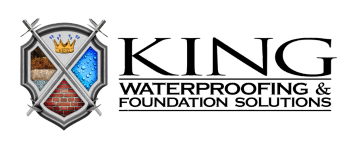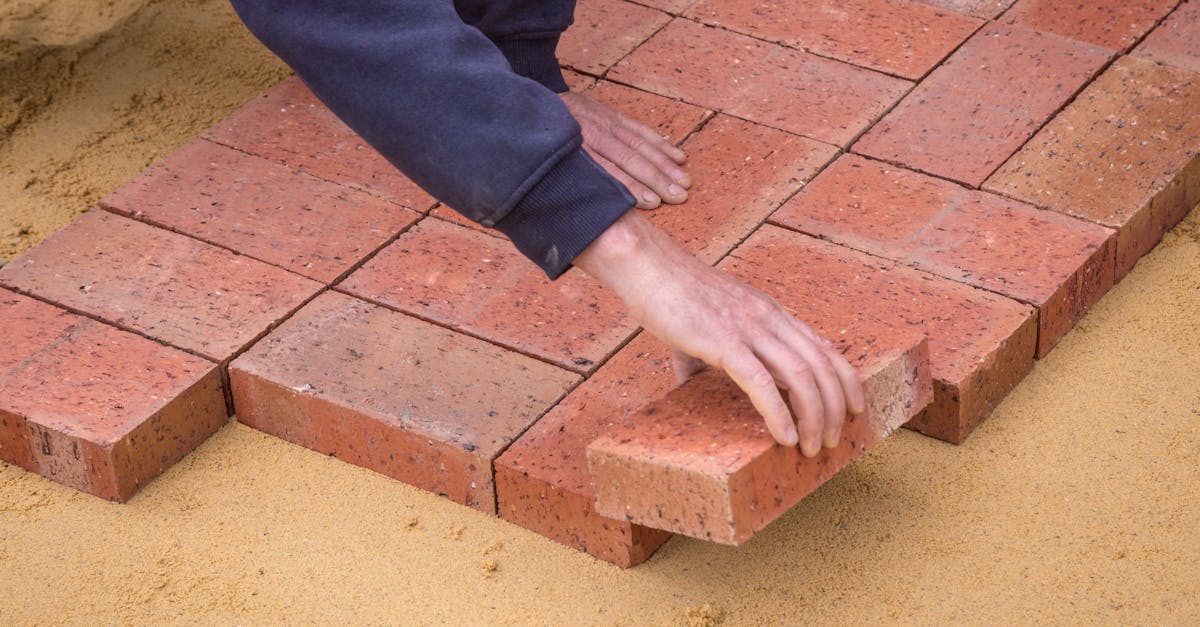When a home’s foundation starts showing signs of distress, it’s crucial to address the issue promptly. Foundation problems can lead to severe structural damage, affecting the safety and value of the property. Homeowners often overlook these early warning signs, but ignoring them can result in costly repairs down the line.
King Waterproofing & Foundation Solutions specializes in diagnosing and repairing foundation issues. Their team of experts uses advanced techniques to ensure the stability and longevity of your home. Whether it’s cracks in the walls, uneven floors, or water seepage, King Waterproofing & Foundation Solutions provides comprehensive solutions to keep your home safe and sound.
Overview of Foundation Issues
Foundation issues can significantly impact a home’s structural integrity. Common problems include settling, shifting, and cracking. Nearly 25% of U.S. homes will experience foundation distress in their lifetime due to various factors like soil conditions, moisture levels, and construction practices.
Causes of Foundation Issues
- Soil Movement: Expansive soils, such as clay, can swell when wet and shrink when dry, causing the foundation to shift.
- Poor Drainage: Inadequate drainage around a home can lead to water accumulation, causing soil erosion and foundation weakening.
- Tree Roots: Nearby trees can draw moisture from the soil, leading to shrinkage and foundation settlement.
- Construction Errors: Subpar construction practices, such as inadequate compaction or poor-quality materials, can result in a compromised foundation.
Indicators of Foundation Problems
- Cracks in Walls: Horizontal cracks in basement walls or stair-step cracks in brickwork often signal foundation movement.
- Uneven Floors: Floors that slope or sag can indicate issues with foundation settling.
- Sticking Doors and Windows: Doors and windows that fail to open or close smoothly may point to foundation shifts.
- Gaps Around Windows and Doors: Gaps or separation between frames and walls suggest foundation movement.
Potential Consequences
- Structural Damage: Untreated foundation issues can lead to severe structural damage, including wall collapse or floor failure.
- Decreased Property Value: Homes with foundation problems typically see a decrease in market value, making them harder to sell.
- Increased Repair Costs: Early detection and repair are crucial; otherwise, more extensive repairs become necessary and costly over time.
Importance of Professional Inspection
A professional inspection can accurately diagnose the root cause of foundation issues. Experts use tools like laser levels, moisture meters, and soil testing to assess the problem comprehensively. King Waterproofing & Foundation Solutions employs these methods to offer tailored solutions, ensuring each home remains safe and stable.
Common Foundation Problems
Understanding common foundation problems helps in taking timely action to prevent extensive damage and costly repairs.
Cracks and Settlements
Cracks and settlements often indicate underlying foundation issues. Many homes experience vertical, horizontal, or diagonal cracks on walls and floors due to soil movement, temperature changes, or structural stresses. Early detection of these cracks helps in addressing the root cause. Settlement occurs when the foundation sinks unevenly, causing floors to sag, gaps to form, and doors and windows to stick. Promptly addressing these signs can prevent further deterioration.
Bowing Walls
Bowing walls result from lateral soil pressure against the foundation, often due to poor drainage, expansive soils, or hydrostatic pressure. Symptoms include inward bulging or tilting of basement or retaining walls. Over time, bowing walls can lead to significant structural failures if left untreated. Reinforcement methods, such as wall anchors or carbon fiber strips, provide stability and prevent further movement.
Moisture Issues
Moisture issues significantly impact a foundation’s health, leading to mold growth, wood rot, and weakened concrete. Common causes include poor drainage, plumbing leaks, and high humidity levels. Signs of moisture problems encompass water stains, musty odors, and damp insulation. Addressing these issues involves improving drainage, sealing cracks, and installing vapor barriers to protect the foundation from water intrusion.
Types of Foundation Repair Services
Foundation repair services address various structural issues using specific methods. Choosing the right service depends on the problem type and severity.
Piering and Underpinning
Piering and underpinning stabilize foundations by transferring the load to deeper, more stable soil layers. Contractors use piers (e.g., helical, push) to provide support. Helical piers screw into the ground, while push piers drive steel pipes into the soil. Both solutions elevate and secure sinking foundations, suitable for severe settlement issues.
Slab Jacking
Slab jacking raises and stabilizes sunken concrete surfaces, such as driveways and patios. Technicians drill small holes into the concrete and pump grout or foam beneath the slab. This material fills voids, lifting and leveling the surface. Slab jacking is ideal for addressing uneven outdoor surfaces and minor foundation settling without extensive excavation.
Waterproofing Solutions
Waterproofing solutions mitigate water infiltration, preventing foundation damage. Common techniques include Exterior Waterproofing (e.g., installing membranes, drainage systems) and Interior Waterproofing (e.g., using sealants, sump pumps). These methods prevent moisture buildup and protect foundations from water-related issues, ensuring long-term stability and integrity.
Choosing the Right Service Provider
Selecting an ideal foundation repair service provider is vital for ensuring effective, enduring repairs. Homeowners should evaluate several factors before making a decision.
Licensing and Certification
Licensed and certified companies meet industry standards, ensuring they possess the requisite knowledge and skills. Verify the provider’s licensing with local and state authorities to confirm they comply with all regulations. Certifications from reputable organizations, such as the Foundation Repair Association, indicate adherence to high professional standards.
Experience and Reputation
Providers with extensive experience can handle diverse foundation issues effectively. Look for companies with at least a decade of experience in the industry. Customer reviews and testimonials on platforms like Google and Yelp offer insights into the company’s reliability and quality of work. An established reputation built on positive feedback and proven results instills confidence.
Warranty and Insurance
A trustworthy provider offers warranties on their services, guaranteeing the repair quality and safeguarding against future issues. Ensure the warranty period is substantial, ideally covering at least five years. Additionally, verify the company’s insurance coverage, including general liability and workers’ compensation, protecting homeowners from any unforeseen liabilities during the repair process.
Cost Considerations
Foundation repair services can be a significant investment, but understanding the factors that affect costs and available financing options can help homeowners manage expenses effectively.
Factors Affecting Cost
Various elements influence the cost of foundation repair, including:
- Type of Repair: Specific methods like piering, slab jacking, and waterproofing vary in cost.
- Extent of Damage: Severity of damage affects both the scope and cost of repair.
- Foundation Type: Different foundations, such as slab, crawl space, or basement, require unique solutions.
- Property Size: Larger properties usually incur higher repair costs.
- Soil Conditions: Poor soil can complicate repairs, raising costs.
- Accessibility: Limited access to the foundation area can increase labor and material costs.
Financing Options
Several financing options can help homeowners manage foundation repair expenses:
- Home Equity Loans: These loans allow using home equity as collateral.
- Personal Loans: Unsecured loans with fixed interest rates can cover repair costs.
- Contractor Financing: Some contractors offer financing plans directly.
- Insurance Claims: Depending on policy coverage, homeowners insurance may cover part of the repair costs.
Understanding these cost factors and financing options enables homeowners to make informed decisions about foundation repairs.
Conclusion
Addressing foundation issues promptly is crucial for maintaining a home’s structural integrity and value. King Waterproofing & Foundation Solutions stands out as a reliable partner in diagnosing and repairing foundation problems, offering tailored solutions for various issues like wall cracks, uneven floors, and moisture infiltration. By employing advanced techniques and ensuring comprehensive inspections, they help homeowners safeguard their properties effectively.
Choosing the right foundation repair service provider involves careful evaluation of licensing, experience, reputation, and warranty provisions. Understanding the factors that influence repair costs and exploring financing options can make these essential investments more manageable. Homeowners can trust King Waterproofing & Foundation Solutions to deliver expert services, ensuring the stability and longevity of their homes.


